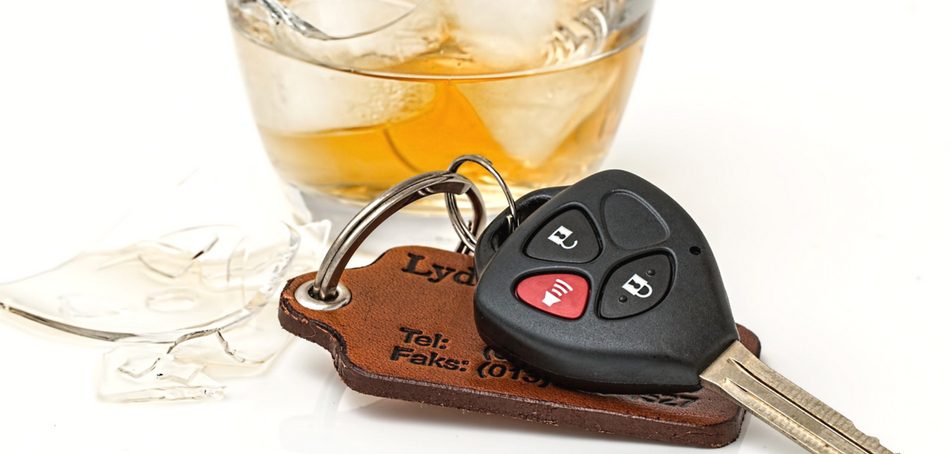Driving Under the Influence of Marijuana?

Law enforcement has a marijuana problem. Set aside the fact that marijuana is illegal at the federal level. Despite US Attorney General Jeff Sessions, that probably won’t be a problem much longer.
Public opinion is moving towards legalization of medical marijuana at least, and maybe recreational as well. As the population fully awakens to not only the enjoyment of marijuana but also the potential health benefits, as the last generation that opposes marijuana on moral grounds ages out of power, full legalization is only a matter of time. It might be five years, it might be 25, but it is coming.
That’s a problem for law enforcement because marijuana is like other substances, such as opioids and alcohol, in that people under the influence should not be in the driver’s seat of a motor vehicle. They are most likely impaired and a danger to others and themselves. Marijuana is unlike those other substances in that the degree and kind of impairment is in question, as is the best way to scientifically test for it.
Tetrahydrocannabinol (THC), the main psychoactive chemical in marijuana, can be detected in breath, saliva, urine, and blood, but intoxication cannot. That’s because while the effects of smoked marijuana normally end after 3-4 hours, THC waste products linger in the body much longer.
How much longer depends on many factors, including how much and how often you use, the potency of the product, how hydrated you were, and even how you used it. The effects of edibles take longer to pass because the THC is absorbed more slowly when it has to be digested first.
As of now, there is no accurate way of determining marijuana intoxication akin to a breathalyzer test for alcohol impairment (although there are “weedalyzers” in development; see below). Where marijuana remains illegal, existing tests work well enough: you don’t have to prove intoxication if use itself is a crime. States where marijuana is legal face a tougher road.
How marijuana use affects your driving is less certain, but in general, its effects seem less impairing than drinking and driving. Several studies have found no increased risk of accidents with marijuana use. In some ways, drivers stoned on marijuana may be safer drivers. They tend to drive under the speed limit, keep more space between the driver in front of them, and in general believe their driving is more impaired than it actually is. It’s the inverse of drunk driver behavior. Neither the stoned or the drunk handle surprises well, however.

Counterclaims that the number of accidents has increased in states with legal marijuana also indicate that “drivers testing positive for having THC often have alcohol in their system.” They also don’t compare rates of death or severity of the accident, just the number. 25% of motor vehicle fatalities involve drunk drivers.
That’s effects, not detects. Among chronic users, urine won’t test clean until as long as 77 days of 100 percent abstinence. That is a tough standard to meet if you need to pass even a monthly urine test as a condition of parole or employment. A one-time use may test clean after about a week. (There are detox kits that promise to remove evidence of your cannabis consumption. Some sites swear by them — because they are paid advertisers? — while others say they are bunk. I can’t authoritatively endorse either view, except to observe that when something sounds too good to be true, it often is.)
Aside from the issue of can you pass a DUI test is the issue of whether you can or should be driving if you have used marijuana recently. If you can’t abstain long enough before you have to hit the road to drive sober, you might have a dependency problem. While the best evidence suggests that marijuana isn’t physically addictive, anything can be psychologically addictive. If caught driving while stoned, you might want to consider so-called marijuana addiction treatment.
There already exist roadside sobriety tests for drunk drivers — coordination tests such as walking a straight line, touching your nose, standing on one leg, etc. — but there is no scientific or judicial consensus that they work for stoned driving.
(This is frustrating for law enforcement, but begs the question: Why is it more “OK” if someone is driving badly if they are sober than if they’re intoxicated? To paraphrase WC Fields, in the morning stoned drivers most likely will be sober; bad drivers may drive badly for the rest of their lives.)

The search for a marijuana intoxication test has become a growth area:
⦁ Cannabix and Hound Labs both have marijuana breathalyzers under development.
⦁ Dräger, a Germany based company, has developed the Drager DrugTest 5000, a saliva test for marijuana and other drugs. It has been field-tested by law enforcement in California, New York, Arizona, and Nevada, and in other countries.
⦁ The computer app DRUID (Driving Under the Influence of Drugs) is available for download. Invented by psychology professor Michael Milburn of the University of Massachusetts Boston, it presents “four simple tasks, three of which are video game tasks that measure reaction time, hand-eye coordination,” plus the SFST one-legged stand. It is intended as much as a self-test by the user as a law enforcement test.
⦁ If you can’t wait for future technology, trained Drug Recognition Experts (DRE) — law enforcement officers trained to recognize and evaluate drug impairment — are currently available though not accepted as scientific or accurate by all courts.

About 30 US states have legalized medical marijuana, and eight have legalized recreational as well. Mexico has legalized medical marijuana, too. Canada is set to enact legalization throughout our northern neighbor on July 1. It seems inevitable that it will be become legal throughout the US sooner rather than later. The lure — real or false — of cannabis tax revenue almost guarantees that. Some form of roadside test is needed. Let’s hope it also is accurate.
BIO: Stephen Bitsoli writes about cannabis legalization, addiction treatment, politics, the law, and related matters. A former magazine and newspaper writer and current guest blogger, Stephen loves learning and sharing what he’s learned.
